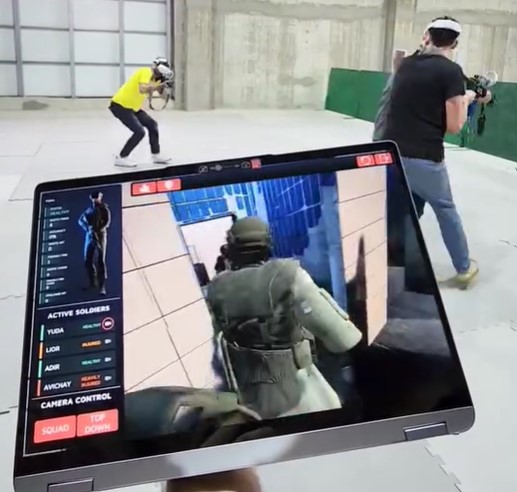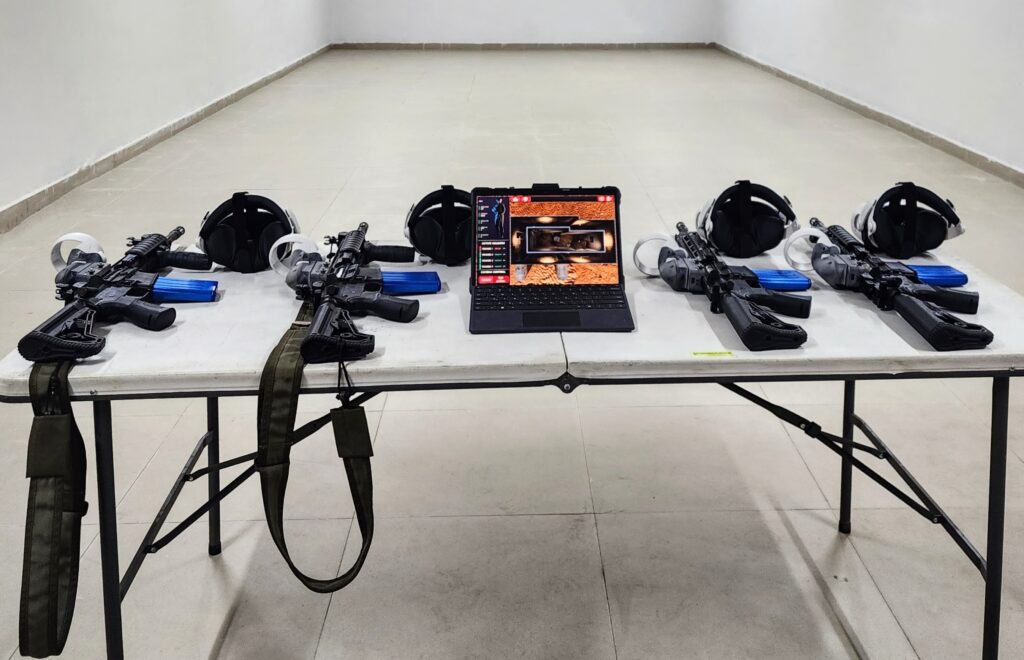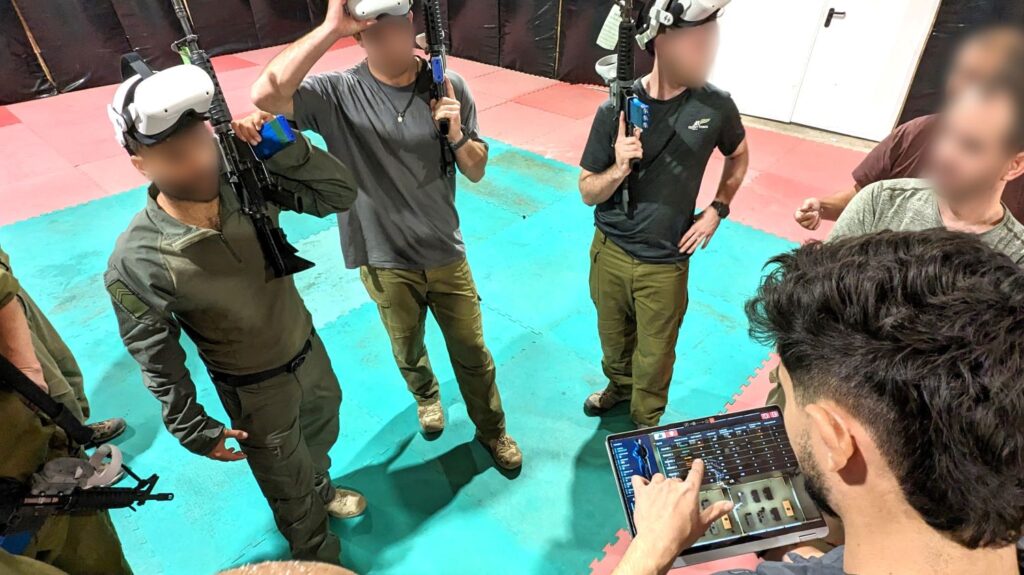Walking stealthily through a school as shooters run rampant, members of a security force are charged with locating and neutralizing them. The sounds of gunfire ringing in their ears, the security forces carefully make their way from classroom to classroom, meticulously avoiding innocents and picking their way across bodies of victims scattered throughout the building.
The scenario is sadly all too real, but the situation is entirely virtual, part of a platform created by three former cyber specialists in the Israel Defense Forces and now used in training by security forces around the globe. This is Combatica XR.
The virtual reality platform consists simply of a pair of lightweight VR goggles, a converted M4 assault rifle or Glock handgun that fires CO2 instead of bullets, and several different scenarios to train in. The stripped-down hardware and advanced, immersive software transform any open space into a sophisticated, almost-too-real training session for soldiers and police officers.

For now, the platform has several generic scenarios that come as part of the package, which can be bought or rented for an undisclosed price.
But, Combatica co-founder and Chief Strategy Officer Erel Herzog tells NoCamels, security services can request a particular setting that the company can then create. In fact, he says, an American law enforcement agency has already requested a bespoke scenario for forces to train with.
Arriving in a padded silver case on wheels no larger than a small suitcase, the entire platform – four VR headsets, four conversion kits for rifles or handguns, a backup battery and a laptop to operate the system – takes around 10 minutes to set up and can be operated in any space.
The startup has carried out training sessions in multiple limited spaces, including community centers and basketball courts.
“Whether it’s a city, a village, kibbutz or town, they provide us with the space and we come,” Herzog says.
The system also includes analytics, allowing for those training to see their shooting accuracy and response time, and highlighting any areas that need improvement. More sophisticated metrics are also in the works, including measuring the user’s heart rate and breathing.
There are also plans to create non-violent scenarios, in which those undergoing training find themselves in a conflict resolution situation and must de-escalate rather than open fire.

Herzog founded the Petah Tikva-headquartered company with Itai Beresi and Combatica CEO Yair Rothenberg in 2021; the three had worked together on a similar premise during their military service.
“We dealt with a lot of AR and VR,” Herzog says of their time in the IDF. He explains that a decade ago, much of the army’s training had been carried out using “old 1980s technology,” a fact that inspired them to begin to develop a virtual reality platform for security forces while still in the IDF – after much wrangling to secure a budget for it.
Sign up for our free weekly newsletter
SubscribeLeaving the army, the co-founders got to work on their own platform.
So far, and despite still being in beta testing, Combatica has been used in Israel by the military and by local first response civil guards, whose courageous actions are credited with saving many lives when Hamas terrorists stormed across the Gaza border into southern Israel on October 7.
In all, Combatica has trained around 1,500 members of Israel’s special forces, police and soldiers since that mass terror attack, which triggered the ongoing war. That training is carried out in partnership with Amarel, a subsidiary of the state-owned Rafael Advanced Defense Systems company.
Militaries and law enforcement agencies around the world are also adopting virtual reality platforms to train their forces, and the number of companies offering these services is growing.
But according to Herzog, Combatica is unique in its lightweight approach, doing away with heavy equipment upon which almost all of their counterparts rely.
“Most of our competition requires you to put on backpacks as well as body cameras,” he says. “And here, everything is self contained.”

While national law forbids all Israeli companies from trading with enemy states, the pair say that they also impose their own limitations on who they are willing to deal with. Some countries, they explain (without specifying), are verboten in their eyes despite not being disqualified by the state.
Conversely, they say Ukraine would be an ideal client, as its army would be able to train troops without leaving the battlefield where they are so desperately needed.
Ultimately, he explains, the platform is to train not to hone your shooting skills, but to improve decision-making capabilities, teamwork and functioning effectively under pressure using hyper-real virtual reality. And it is all delivered in an unassuming metal case.
“Simple, mobile, flexible,” says Rothenberg.
Related posts

Editors’ & Readers’ Choice: 10 Favorite NoCamels Articles

Forward Facing: What Does The Future Hold For Israeli High-Tech?

Impact Innovation: Israeli Startups That Could Shape Our Future




Facebook comments